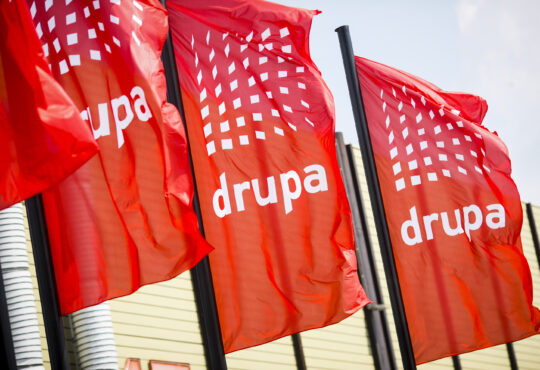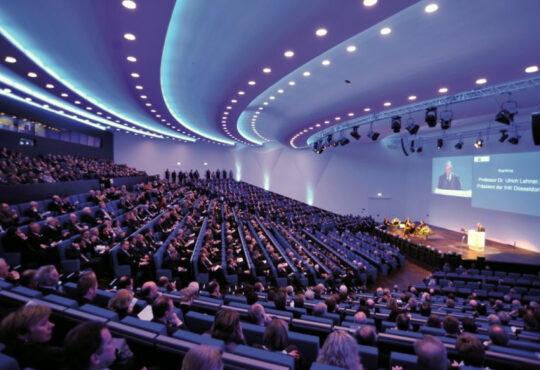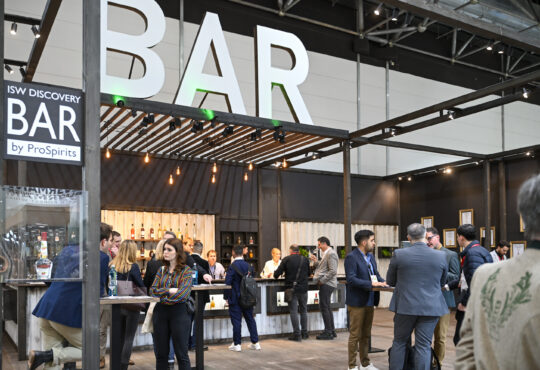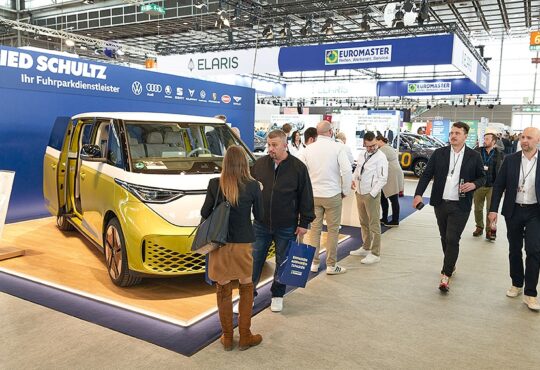Between sustainability and festivalisation – the future of the trade fair is hybrid
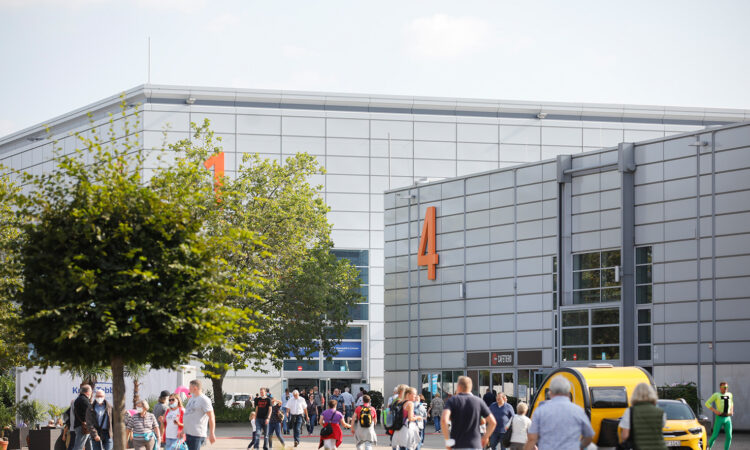
The business meeting at the kitchen table, matchmaking on the couch or the panel discussion during a walk – reinforced by the Corona pandemic, digitalisation is leading to a new form of live communication. But to what extent can digital trade fairs replace face-to-face events? What role do hybrid formats play for the trade fair world? And will attendance fairs survive in the future?
Why trade fairs are the platform of the future
Trade fairs thrive on personal exchange, the haptic discovery of new technologies and trends as well as physical presentations. All this seemed irreplaceable before the Corona crisis and presented many organisers with major challenges in spring 2020. But special times require new concepts. And so, in October 2020, we launched our first purely virtual event with glasstec VIRTUAL, which was attended by around 10,000 visitors from more than 110 and around 800 exhibitors from 44 countries. The event was also a complete success digitally.
This is certainly also due to the fact that our trade fair was not purely analogue even before the Corona pandemic: Trade fair portals, trade fair apps or our online order system are just a few digital offerings with which we create a seamless experience for our exhibitors and visitors.
We know: the future of the trade fair is not only analogue OR digital, but …
… hybrid – the best of both worlds
A mixture between digital and analogue is offered by hybrid events, i.e. presence fairs with digital extensions and additional offers. After the Corona pandemic prevented some trade fairs from taking place in presence, we were very happy that we started a hybrid trade fair in autumn 2020. Because despite intensive, digital communication, the desire for personal encounters remains. According to a survey by the VDMA, ZVEI, SPECTARIS and AUMA associations, events in an exclusively digital format are not a permanent alternative to real trade fairs for most exhibiting companies. Hybrid trade fairs, on the other hand, combine the best of both worlds and are an ideal complement to analogue events. CARAVAN SALON Düsseldorf, MEDICA and COMPAMED as well as A+A are just some of the trade fairs that extend presence trade fairs with advanced digital services. In addition, hybrid formats can increase the reach of trade fairs and events and supplement new meaningful services with digital services and create new added value.
Festivalisation of trade fairs
Whether digital, analogue or hybrid – in addition to sustainable concepts and technologies, emotions and added value in terms of content are increasingly coming into focus for the trade fair audience. This is because people’s needs and expectations have changed fundamentally as a result of the pandemic. Personal interactions have been severely curtailed in recent years, all the more reason for the demand for physical encounters to increase. A trend towards spectacular programmes and after-show parties can therefore be observed at trade fairs and conferences. In its white paper ” Live communication in the new normal between real, digital and hybrid“, the Bundesverband Industrie Kommunikation e.V. even speaks of a trend towards festivalisation. However, the most important thing is that convincing content is communicated before the event. “No one goes anywhere or participates digitally on a whim anymore,” explains Prof. Dr. Uwe Kleinkes, head of the Technical Management and Marketing course at Hamm-Lippstadt University of Applied Sciences. So digital communication continues to play a major role in analogue events as well.
#EndlichwiederMesse (#Fairagainatlast) In spring it will start again
Experiencing technology, products as well as trends “live” is still very important and an essential building block in the marketing portfolio of companies. In the post-pandemic age, people crave face-to-face interaction all the more. By bringing the digital community together with what is happening on site, we therefore create essential added value for the networks of the respective event – whether it is a trade fair or a conference. With our spring trade fairs in May BEAUTY, TOP HAIR, ProWein and EuroCIS – which, by the way, will also celebrate its 25th anniversary this year – we are starting optimistically with new trends, exciting side events, personal networking as well as innovative digital services and added value for the companies. In June, wire/ Tube as well as the guest event METAV and PRINT DIGITAL CONVENTION will again show that trade fairs are the platform of the future and drivers of innovation in the industries.
Sustainability in the focus of the trade fairs
One of these trade fairs is decarbXpo in September, which, as the successor to the energy storage trade fair ENERGY STORAGE, also offers a stage for the megatrends of CO2 reduction/decarbonisation – as the location for leading world trade fairs for energy-intensive industries, this is a perfect addition to our portfolio. After all, the global climate crisis continues to advance and with it the obligation for companies as important players to make a contribution and assume ecological responsibility. Each and every one of us has a part to play – this also applies to us as a trade fair company. Digital and hybrid formats, for example, reduce physical trade fair attendance, material and energy resources. At the same time, national and international trade fair platforms offer innovative products that demonstrate new future perspectives and solutions for the current challenges of our time. Sustainability will continue to be a trend-setting theme for the upcoming trade fairs in Düsseldorf and will be taken into consideration in new formats.
Hybrid trade fair formats and innovative networking platforms will become increasingly important in the future. Fittingly, on 3 March 2022, the Digitalk ( Digital City Düsseldorf) took place with our Executive Director Dr Christian Plenge on the topic of “Digital is the new normal – how we will travel and meet in the future”.
For us, it is therefore obvious: digital formats can – especially in times of a pandemic – cover knowledge transfer, matchmaking or product presentations well, but they are no substitute for face-to-face events and real encounters. But even if trade fairs can once again take place in analogue form, digital services will remain. The future of trade fairs is therefore not analogue or digital, but hybrid.
Have you ever visited a hybrid trade fair? Feel free to share your experiences with us in the comments!
Header image source: Messe Düsseldorf/C.Tillmann




